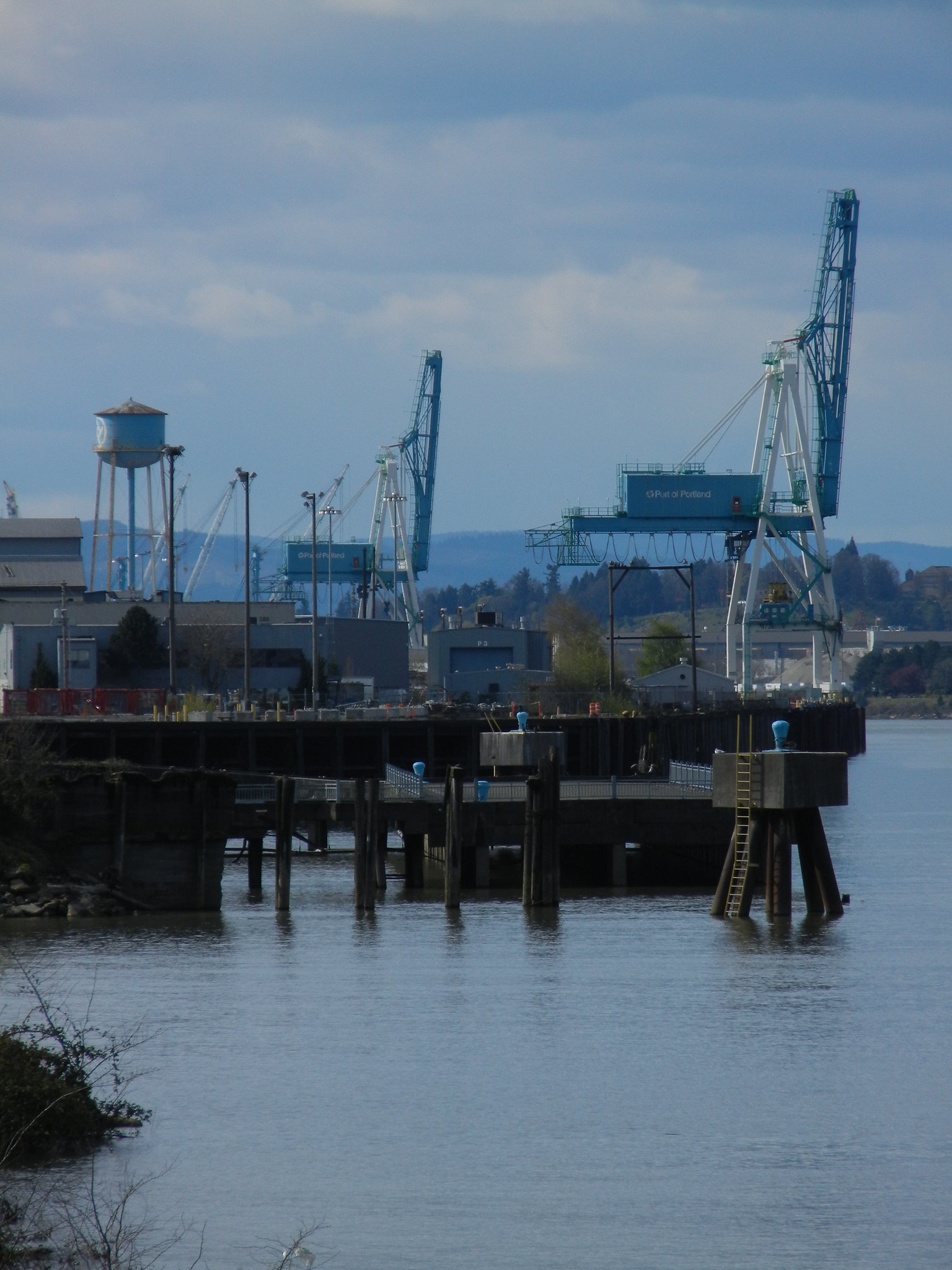Gregory Butler criticizes the jurisdictional dispute that led to a massive fine for the International Longshore and Warehouse Union. Image: Port of Portland cranes by SoulRider.222 via Flickr.
Portland, Oregon Local 8 of the International Longshore and Warehouse Union and their parent international union are facing a crippling judgment after a lawsuit by ICTSI Oregon, a port terminal company out of the Philippines. The original verdict was $93 million dollars, reduced to “only” $19 million by the court.
What was the cause of the lawsuit?
A stupid jurisdictional dispute with another union.
The International Brotherhood of Electrical Workers represented two workers on the docks in Portland – their job involved plugging in refrigerated sea freight containers into a shoreside temporary power system.
Those were a total of two jobs, as compared to the 500 jobs that the ILWU represented on the docks.
However, as is common with craft unions, the ILWU claimed those jobs from the IBEW – and of course the electricians wouldn’t give those jobs up.
So, the ILWU carried out a work slowdown action to compel the employer to get rid of those IBEW guys and replace them with ILWU members.
Meanwhile, while these unions were scrapping over two jobs, the Portland docks, like every other nominally union port in this country, are full of non-union workers.
The sailors, who sail the cargo ships that are at the core of sea freight operations, are overwhelmingly non-union. Most of them sail for ships owned by companies in first world countries like Norway, Denmark, Greece, Great Britain, Japan or the US, but the vessels are registered in tiny non-sea-faring states like the Marianas Islands, Panama, Liberia, the Marshal Islands or Cyprus, for union evasion reasons (there was a time, as recently as the 1960s, when these sailors sailed under the flag of the state the ship was based in and these sailors were union members).
On the other side of the docks, los troqueros (“the truckers”) who haul the sea freight, are also almost all non-union. This work was once done by Teamster drivers who were employees of the trucking lines, however in the 1970s they were laid off, and replaced by non-union owner-operators, who get paid by the trip and have to buy their own trucks and pay for diesel and repairs out of pocket.
Neither the ILWU nor the IBEW (or even the Teamsters or the Seafarers International Union) have much interest in organizing los troqueros or the sailors – but these unions bickered over already organized work.
The dispute horribly backfired: the shipping line serving the Port of Portland diverted 100% of their work to Seattle, effectively shutting down the port and causing all 502 workers to lose their jobs, and the terminal operator sued the union and won. The potential verdict will quite possibly bankrupt the ILWU.
I’ve dealt with this kind of stupidity before – I was a shop steward in Local 157 of the United Brotherhood of Carpenters in New York City for 17 years.
Like the ILWU, we were a craft union in an industry of craft unions (construction in the US has 17 different unions: Carpenters, Electricians, Communications Workers, Ironworkers, Plumbers, Boilermakers, Painters, Plasterers, Sheet Metal Workers, Elevator Constructors, Roofers, Asbestos Workers, Bricklayers, Stone Masons, Laborers, Operating Engineers and Teamsters) and these unions are constantly in a war of all against all over these jobs.
Meanwhile, depending on the city you’re talking about, 90 to 95% of construction workers are non-union.
Do these unions organize the non-union workers? By and large, no, they do not.
However, unions often fight over the few jobs that are union.
I’ve been in some of these disputes – at a furniture installation job, fighting with the electricians union over whose members would install a bracket underneath these desks that a wire for a computer cable was attached to; fighting with the ironworkers over the metal track that a plate glass window was to be installed in, etc.
This is one of the biggest flaws in craft unionism, and it’s a major factor in the death of trade unionism in the US.
We’re in a situation where only 6% of the private sector labor force in the US is union, and that percentage is shrinking every day.
Perhaps we need to build a whole new labor movement among the 94% — and, among other things, build industry-wide unions, where everybody in a given industry is in one wall-to-wall union, with no stupid jurisdictional beefs.

